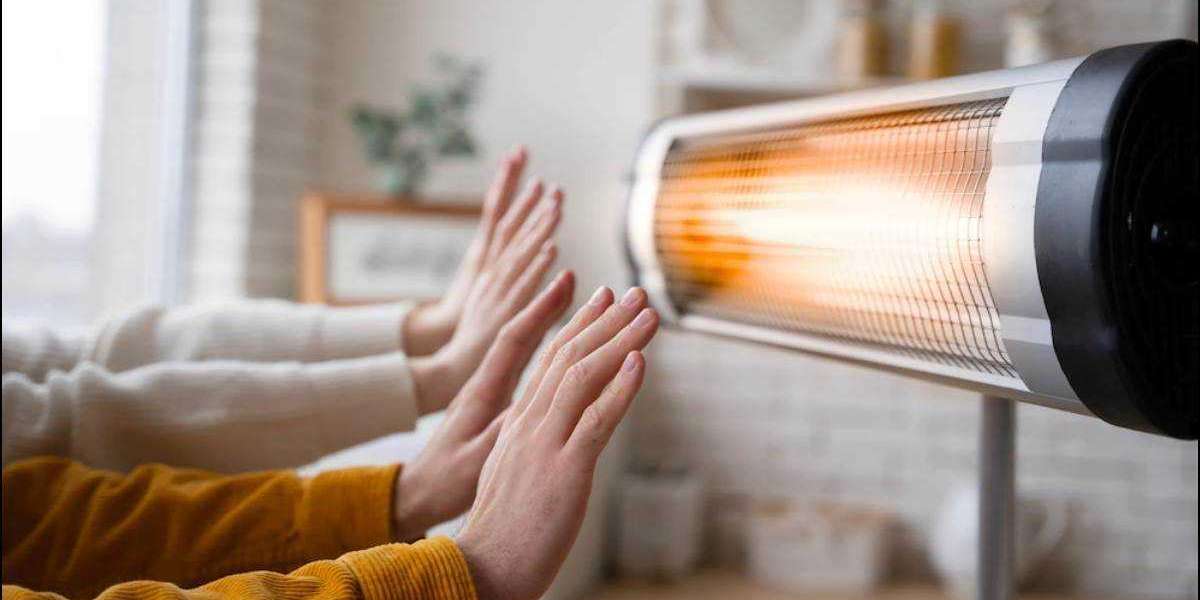The UAE, with its scorching summers and mild winters, often requires supplemental heating. Choosing the right heater is essential for comfort and energy efficiency. Factors such as heating capacity, type of heater, safety features, energy efficiency, portability, noise level, and brand reputation should be carefully considered.
This blog explores these factors in detail, helping you make an informed decision. By understanding your specific needs and preferences, you can select heaters that best suits your lifestyle and ensures a comfortable winter in the UAE.
1. Heating Capacity:
- Wattage: The higher the wattage, the more heat it can produce. For example, a 1500-watt heater will generate more heat than a 1000-watt heater.
- Room Size: Ensure the heater's capacity matches the size of the room you intend to heat. A small heater may struggle to heat a large space, while a large heater might be overkill for a small room.
- Insulation: Well-insulated rooms require less heating power. If your home has good insulation, you can choose a heater with a lower wattage. Additionally, consider the number of windows and doors in the room, as these can affect heat loss.
2. Type of Heater:
- Convection Heaters: Distribute heat through air currents. Suitable for larger rooms. Convection heaters are a popular alternative for heating large areas. They work by drawing in cool air, heating it, and then blowing it out into the room. This creates a consistent temperature throughout the space.
- Radiant Heaters: Emit heat waves that heat items directly. Ideal for smaller spaces or targeted heating. Radiant heaters are great for heating specific areas or people. They work by emitting heat waves that directly warm objects and people in their path. This can be more efficient than convection heaters, especially in smaller spaces.
- Fan Heaters: Combine convection and radiant heating for faster warming. Fan heaters are a good option if you need quick heat. They combine convection and radiant heating, which allows them to warm up a room more quickly than either type of heater alone.
- Oil-Filled Radiators: Provide steady, long-lasting heat. Oil-filled radiators are known for their steady and long-lasting heat. They work by heating up oil inside a metal enclosure, which then radiates heat into the room. This can create a comfortable and even temperature.
3. Safety Features:
- Tip-Over Protection: Automatically shuts off if the heater is accidentally knocked over. This feature is essential for preventing fires and injuries. If the heater is tipped over, it will automatically turn off to prevent further damage.
- Overheat Protection: Prevents overheating and potential fires. Overheat protection is another important safety feature. It helps to prevent the heater from overheating and causing a fire. If the heater becomes too hot, it will automatically turn off.
- Cord Length: A longer cord offers more flexibility in placement. A longer cord gives you more flexibility in where you can place the heater. This is especially important if you have a large room or if you need to move the heater frequently.
4. Energy Efficiency:
- Energy Star Rating: Look for this certification to ensure energy efficiency. An Energy Star rating indicates that the heater is energy efficient. This means that it will use less energy to produce the same amount of heat, which can save you money on your energy bills.
- Operating Costs: Consider the long-term energy consumption and associated costs. It's important to consider the long-term operating costs of the heater. This includes the energy consumption and any associated maintenance costs. A more energy-efficient heater may have a higher upfront cost, but it can save you money in the long run.
5. Portability:
- Weight and Size: If you plan to move the heater frequently, opt for a lightweight and compact model. If you need to move the heater frequently, a lightweight and compact model is the best option. This will make it easy to move and store.
- Wheels or Handles: These features can enhance portability. Wheels and handles can make it easier to move the heater around. This is especially helpful if you have a large room or if you need to move the heater between different rooms.
6. Noise Level:
- Decibel Rating: Check the decibel level to gauge the heater's noise output. The decibel rating measures the noise level of the heater. A lower decibel rating means the heater is quieter.
- Quiet Operation: If you're sensitive to noise, choose a heater with a low decibel rating. If you are sensitive to noise, it's important to choose a heater with a low decibel rating. This will help to ensure that the heater doesn't disturb you or others in your home.
7. Brand and Warranty:
- Reputation: Research the brand's reputation for quality and reliability. It's important to research the brand's reputation before making a purchase. Look for reviews and ratings from other customers to get an idea of the heater's quality and reliability.
- Warranty: A longer warranty period provides added peace of mind. A longer warranty period can give you added peace of mind. If the heater develops a problem, a warranty can help you get it repaired or replaced at no cost.
Conclusion
Choosing the right heater for your UAE home is crucial for comfort and energy efficiency. Whether you're heating up a small room or preparing a meal in your air fryer, by carefully considering factors such as heating capacity, type of heater, safety features, energy efficiency, portability, noise level, and brand reputation, you can make an informed decision.
Remember to assess your specific needs and preferences to find a heater that best suits your lifestyle. Whether you prioritize quick heat, energy savings, or quiet operation, there is a suitable option available. Invest in a reliable and efficient heater to enjoy a comfortable and cozy winter in the UAE.






